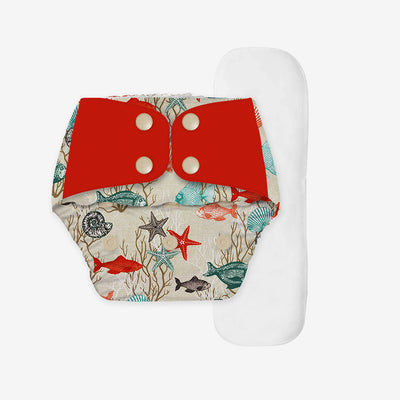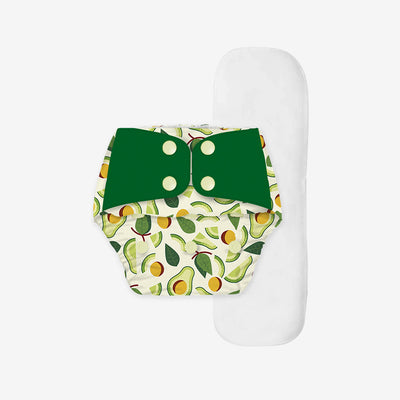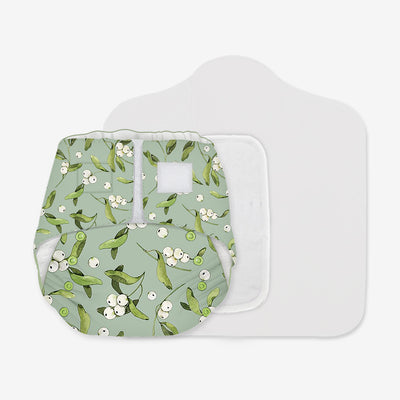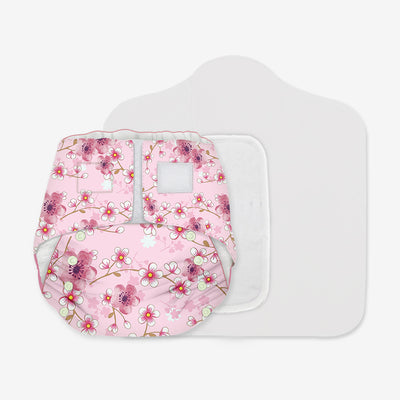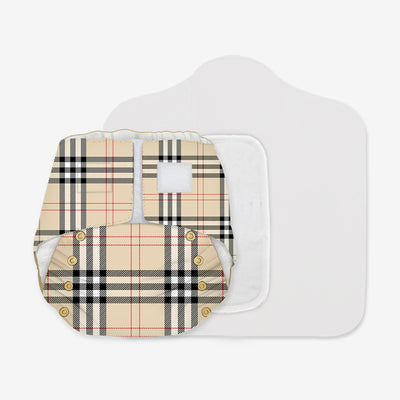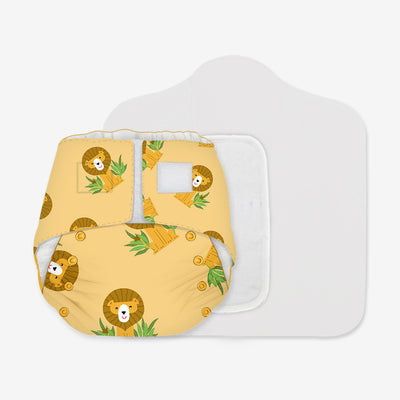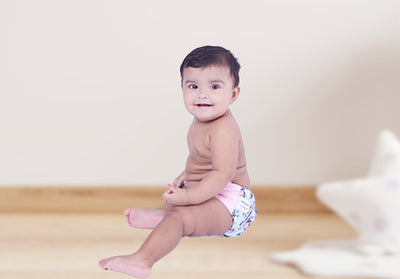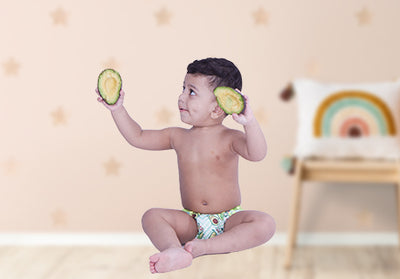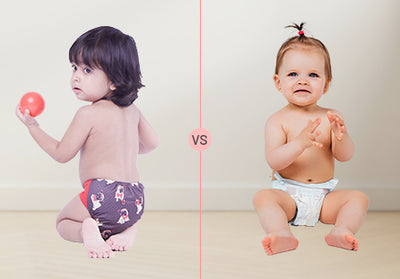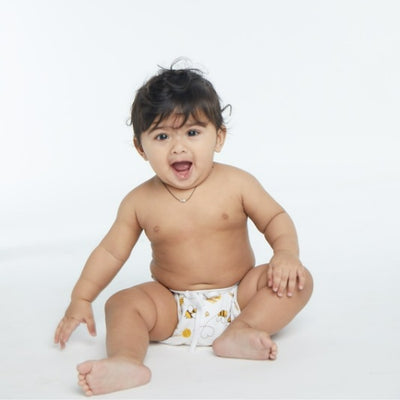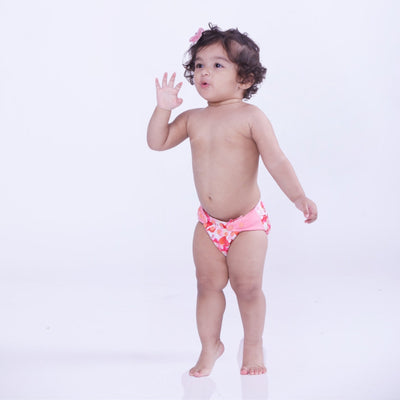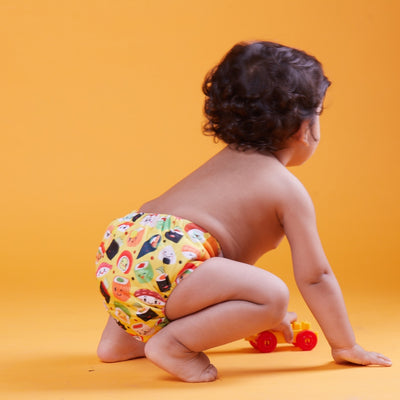Organic cloth diapers V/s disposable diapers – Which one is better!
Using high-quality cloth diapers for your baby is a great way to eliminate exposure to harmful chemicals. Organic cloth diapers help you eliminate your carbon footprint and help protect the environment from the bulk of waste caused due to disposable diapers.
If you are new to parenting, you must explore the internet or ask some experienced mothers to suggest choosing the correct diaper. Many opt for a disposable diaper over the cloth one as it is pretty easy and comfortable to use. There is no hassle to clean it, wash it and reuse it. Simply use and throw. No washing, no maintenance, and no complications. But you will discover many cons of disposable diapers. Especially factors related to your baby's hygiene and health. Initially, you will find cloth diapering a bit difficult, and you need to be patient and ready to learn about using it.
What are organic cloth diapers?
Organic cloth diapers consist of three main components. The absorbent material is prepared with an organic layer of cloth that is completely hygienic and free from harmful chemicals. The inner layer is made of stay-dry material to make the baby feel dry. The waterproof outer layer of the diaper avoids any leakage on the outer surface. Another beneficial component is the snap button which helps you adjust the size of the diaper as per the baby's weight.
Following are the five reasons that can compel you to choose an organic cloth diaper over its disposable counterpart.
-
No harmful chemicals
Studies have revealed that disposable diapers carry harmful chemicals like Phthalates. Such toxic chemicals disrupt the endocrine system that causes severe diseases like diabetes. They may cause reproductive disorders. On average, a baby uses approximately 6000 diapers from birth till the potty training period. A disposable diaper gives the baby direct exposure to these harmful toxic chemicals absorbed by the baby's skin through dermal absorption. On the contrary, organic cloth diapers contain a layer of cloth made of organic cotton grown without pesticides and chemical fertilizer.
-
Waste treatment
The average usage for a diaper by a baby annually reaches 2000. The pile of waste that comes out due to disposable diapers leads to poor waste treatment and management. Study shows that 27.4 billion disposable diapers with solid waste are thrown out in the trash that is landfilled every year. It contaminates the groundwater. The toxins and dioxins that come out from these diapers create a severe threat to our food chain. These, when intentionally or unintentionally flushed into the toilet, make fat-bergs in the sewer line.
On the contrary, the organic cloth diaper is reusable. You can dispose of the solid waste into the toilet and properly wash before its reuse. Organic cloth diapers are so durable that you can keep them for your next baby. On average, a baby can use 20 to 30 organic cloth diapers in three years, minimizing the waste.
-
Economical
People often think that organic cloth diapers are more expensive than disposable diapers. But this is not the case; it reduces the cost of stocking up numerous diapers. Say, on average, a baby uses eight diapers in a day. The typical disposable diaper costs ₹ 10/-. It means one-day diapering costs ₹ 80/ - and the annual consumption cost ₹ 29,200/-. If you use organic cloth diapers, 16-20 diapers would be needed for every alternate day. They will last for three years and the average cost is ₹ 800. For 20 diapers, it costs ₹ 16000/-, which is for three years. This cost is pretty minor compared to the cost of disposable diapers.
-
Rash free diapers
The soft skin of babies is prone to rashes. Diaper rashes arise due to not changing the diaper frequently. When the baby's smooth skin reacts with chemicals of disposable diapers and prolonged wetness, it gets rashes. If the baby's skin is sensitive, then chances of getting rashes increases. The organic cloth diapers have no chemical components and eliminate the chances of getting rashes on baby skin. It provides breathability and airflow that make the baby feel comfortable and dry. The natural fiber in the organic diaper is significantly softer, just adverse to the plastic used in disposable diapers. The frequency of changing the diaper is more with cloth diapers than disposables, enhancing the chances to offer rash-free diapering.
-
Colorful and attractive
Organic cloth diapers come in cute and attractive prints, colors, patterns, and textures. The best part is that these diapers are adjustable and fit the babies from birth to potty training. Also, it is easier to switch to training pants from cloth diapers rather than disposable diapers.
Conclusion
Many parents choose disposable diapers over organic ones because they feel it's more convenient. However, there are many advantages to using organic cloth diapers that outweigh the disposable ones. At the same time organic diapers are more economical.
Related Blogs
Cloth Diapers Vs Disposable Diapers, Pros And Cons


